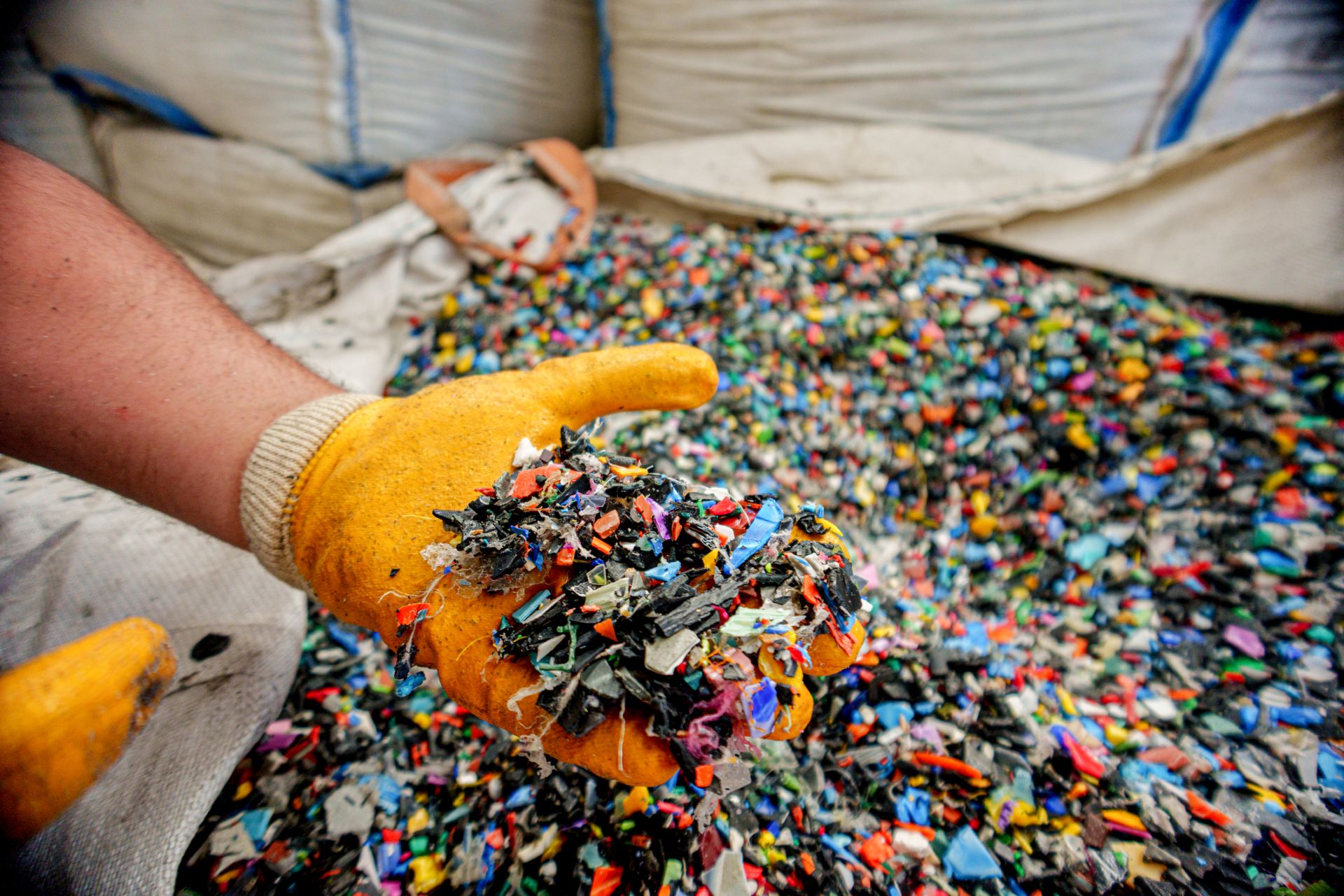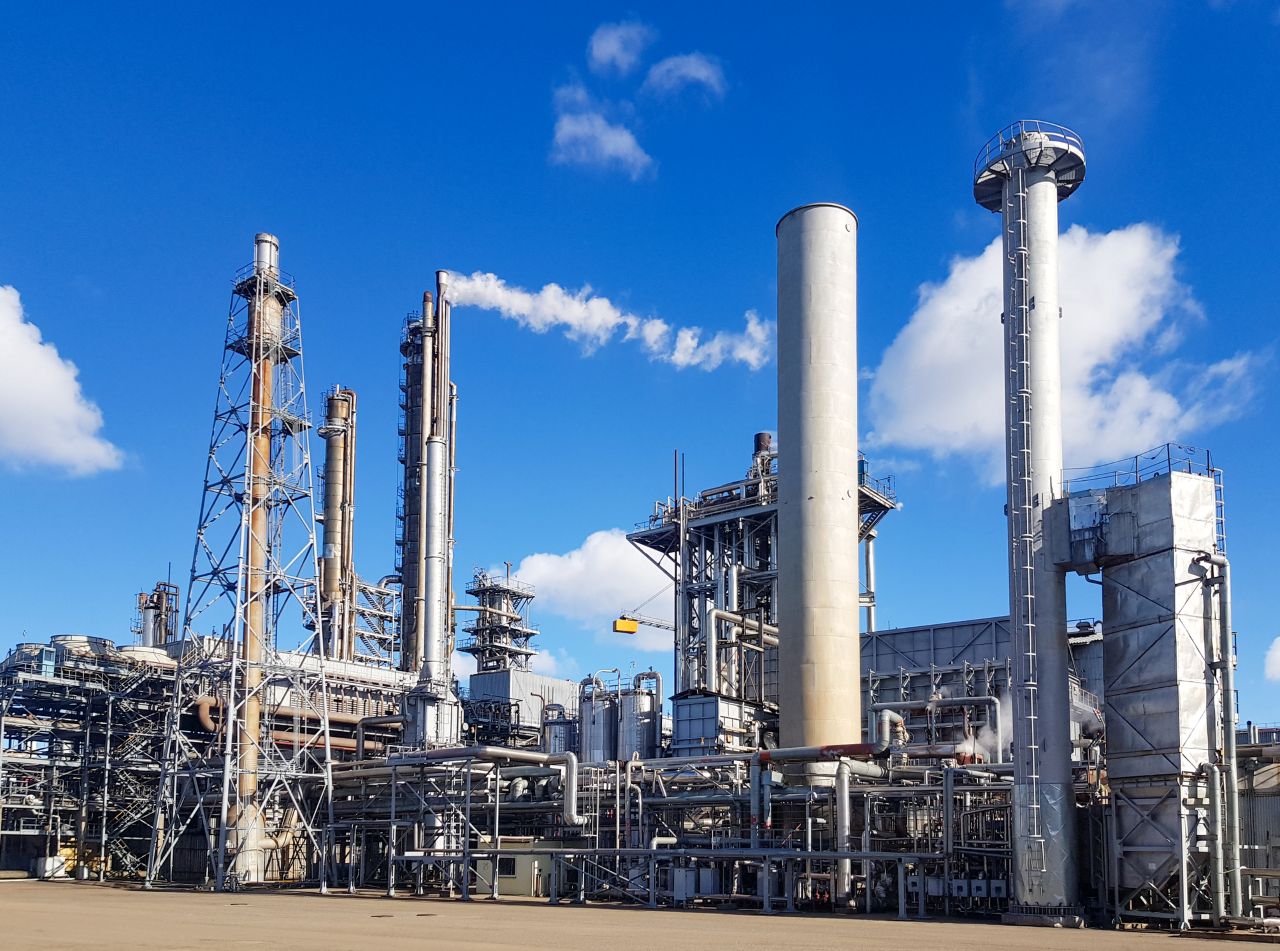Dubious claims of chemical plastics ‘recycling’ industry run into reality

The past few years have seen a flurry of ambitious announcements about “chemical recycling” – a term used to greenwash the plastics industry and pretend that breaking down used plastic into toxic chemicals for resale will solve the world’s plastics pollution problem.
Chemical recycling refers to processes – like pyrolysis, gasification, solvolysis, and solvent-based purification – that use heat or chemicals to make new chemical products from plastic waste. Not only are these processes energy-intensive, but they generate large quantities of hazardous waste and air pollution that can cause cancer and other illnesses.
At least 38 chemical recycling projects have been proposed across the country, and three plants are currently under construction, two in Georgia and one in West Virginia, according to public records tracked on Oil & Gas Watch and compiled in this fact sheet.
But the future of these projects is highly uncertain, as companies struggle with high costs, low output, and the loss of government subsidies.
Only nine chemical recycling plants are operating in the U.S. today after four facilities shut down because of technical and financial troubles. Among those closing is one of the oldest chemical recycling plants in the U.S., the Regenyx facility in Tigard, Oregon, which began operating at “pilot” scale in 2010. The companies behind Regenyx announced in a February 29 press release that the plant would be shut down by the end of April 2024. Although they claimed the plant was “successful,” public documents show that the facility had only processed 40 percent of the 3,650 tons of waste a year the company had claimed it would handle. A recent report found that the company sustained operating losses of $22.4 million in 2020 and 2021.
Another major chemical recycling plant in Nevada also recently closed its doors. Fulcrum BioEnergy’s waste-to-jet fuel plant converted municipal solid waste, about 20 percent of which is plastic, into synthetic crude oil that was processed into sustainable aviation fuel at a nearby Marathon refinery. Fulcrum’s plant finally began operating after years of delays, but the company struggled to keep operations running consistently and failed to repay government bonds. It was shut down in May 2024 after operating for only two years. Fulcrum filed for Chapter 11 bankruptcy in September of last year, canceling projects it planned to develop in Indiana and Texas.
Fulcrum isn’t the only chemical recycling company to file for bankruptcy in recent years. Brightmark Plastics operates a plant in Ashley, Indiana, which caught fire in 2021 after operating for only one year. The company never managed to get the plant up and running at commercial scale and filed for bankruptcy in March. According to Plastics News, the bankruptcy filing revealed that the Ashley plant was only operating at 5 percent capacity and, as of 2023, only managed to process around 2,000 tons of plastic waste. In May, the company bought itself back at auction with the hope of keeping the facility operational.
The Indiana fire generated a storm of controversy that in part led to a similar Brightmark plant being canceled in Macon, Georgia. It was also a wake up call for some, including Tom Hetrick, city council president of Youngstown, Ohio.
Youngstown residents have been challenging a proposed chemical recycling plant being developed by SOBE Thermal Energy. The project would take old tires, chop them up, treat them with chemicals and convert them into a form of synthetic gas.
“That’s when the red flags started going off in my head,” Hetrick said of the Indiana fire. “We really don’t want that in the middle of Youngstown.”
The Youngstown City Council passed a one-year moratorium on any new pyrolysis or gasification facilities in the city in December 2023. “The safety and environmental risks of waste pyrolysis are particularly troubling, and the facility’s proposed location adjacent to our downtown and vulnerable neighborhoods is not in alignment with our city’s comprehensive plan,” Hetrick said in a statement after the vote. The City Council unanimously approved another moratorium in November 2024, extending the ordinance for another year.
As more information on the dangers of chemical recycling comes to light, more and more communities have begun to fight back. Last year, residents of Point Township, Pennsylvania, successfully opposed plans to build a chemical recycling facility that would have extracted benzene, toluene, and xylene – dangerous chemicals known to cause cancer and other serious health problems – out of plastic waste by chemically treating the plastic to split its molecular chains. Encina, the company developing the project, announced that it was canceling its plan after a local council voted to deny its request to withdraw 2.9 million gallons of water a day from the Susquehanna River and discharge contaminated wastewater back into the Chesapeake Bay’s biggest tributary. The council also ruled that the Encina plant “would pose unacceptable risks of toxic emissions into the air that may cause cancer….; harm to the nervous system and brain; birth defects; irritation to the eyes, nose, and throat; (and) impaired lung function.”
“If this (had been) built, this area would become another cancer alley,” said Lana Gulden, one of many local residents who opposed the Encina project.
Encina’s plant is just one of seven chemical recycling projects to be canceled in recent years. In early August, Alterra Energy – a chemical recycling company that already owns a plant in Akron, Ohio – canceled plans to build another facility in Sugarloaf, Pennsylvania, after a lease arrangement with a local property owner fell through. Local residents and environmental groups celebrated the decision.
“The people of Sugarloaf and surrounding areas are elated… This is a big win for our area,” Annie Vinatieri, a local community leader and member of Luzerne County Community Action Coalition, said in a statement. “The people have spoken and our voices have been heard. We will continue to fight for clean air, water and a safer, healthier future for Luzerne County.”
According to Alterra’s air permit application, the Sugarloaf plant could have emitted over 11,000 pounds of hazardous air pollutants annually, along with other dangerous pollutants, like volatile organic compounds and fine particulate matter.
Despite serious health and safety concerns, state agencies responsible for conducting environmental reviews have approved air permits for six chemical recycling projects across the country. At least 32 more have been proposed and could begin operations over the next three years, in addition to the three projects already under construction.
That’s partly because chemical recycling has been heavily promoted by the plastics industry and its main lobbying arm, the American Chemistry Council, which pushes the claim that plastics – manufactured from oil and gas – can be made into a renewable resource. “Plastics are highly efficient and modern materials that are essential to meeting society’s needs,” the Chemistry Council said in one press release about chemical recycling.
As of late 2023, at least 24 states had passed laws promoting chemical recycling, with dozens more bills under consideration in state legislatures. Some of these laws incorrectly classify chemical recycling as actual recycling or redefine waste or incineration processes to exclude chemical recycling. This allows the chemical recycling industry to bypass more stringent air and water quality requirements.
“Far too often industry presents increasing recycling as the ‘silver bullet’ that will solve plastic pollution problems. But we can’t recycle our way out of this problem-- we need comprehensive solutions,” explains Veena Singla, an environmental health researcher with the University of California San Francisco and author of the report, “Recycling Lies.”
“Fortunately we have many policy solutions already on hand,” said Singla. That includes eliminating unnecessary single-use plastics, holding plastic producers and polluters accountable for the end-of-life management of their products, and implementing mandatory caps on plastic production, just to name a few.
“There is strong public support for solutions to the plastic pollution crisis,” Singla concluded. “We should invest public money wisely in proven effective solutions that focus on reducing plastic production and use.”














